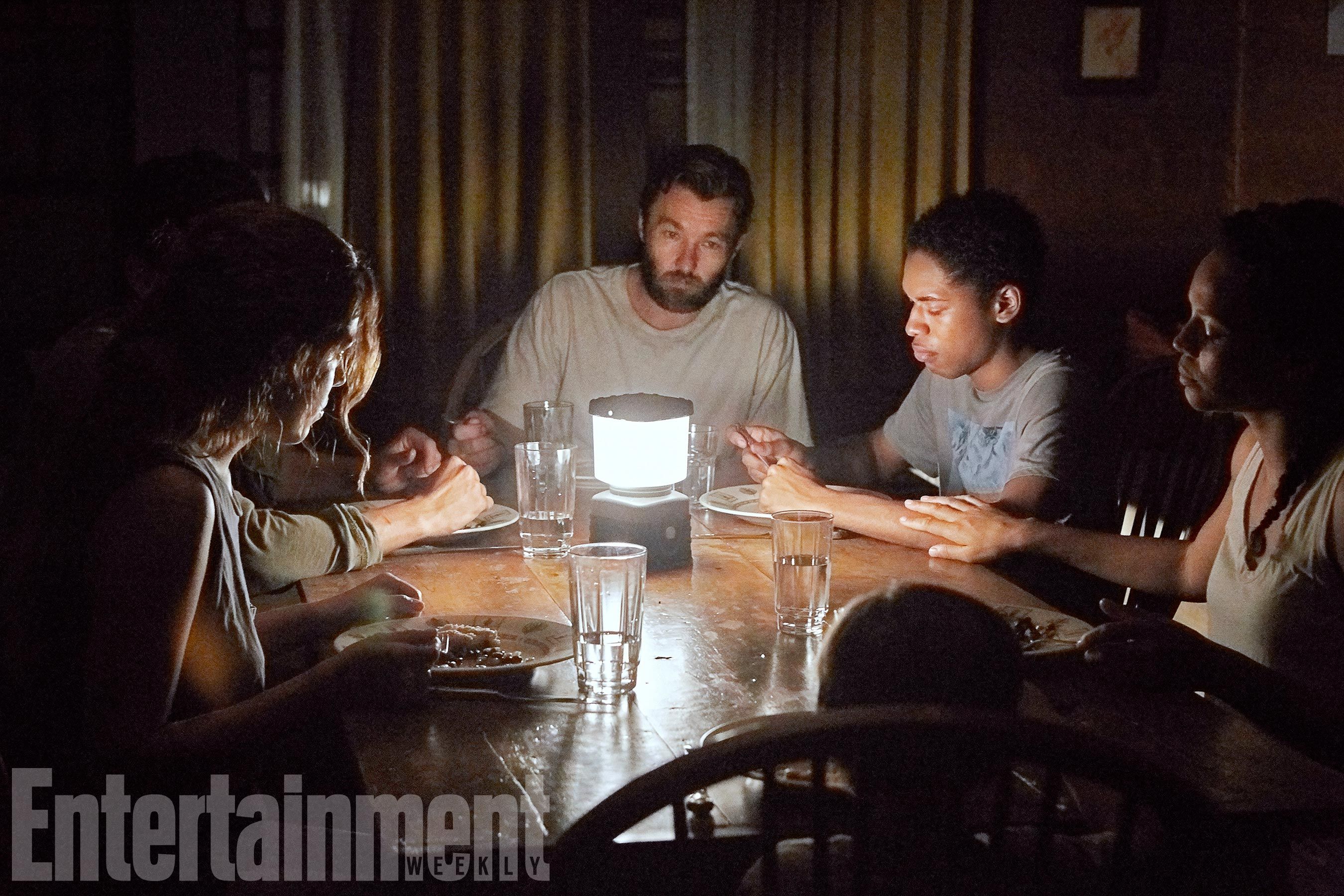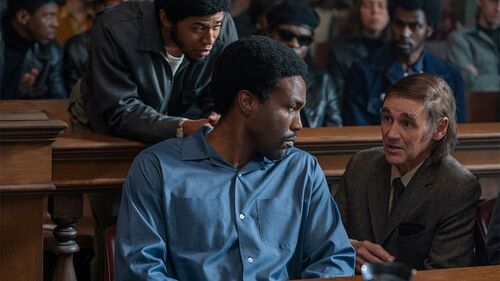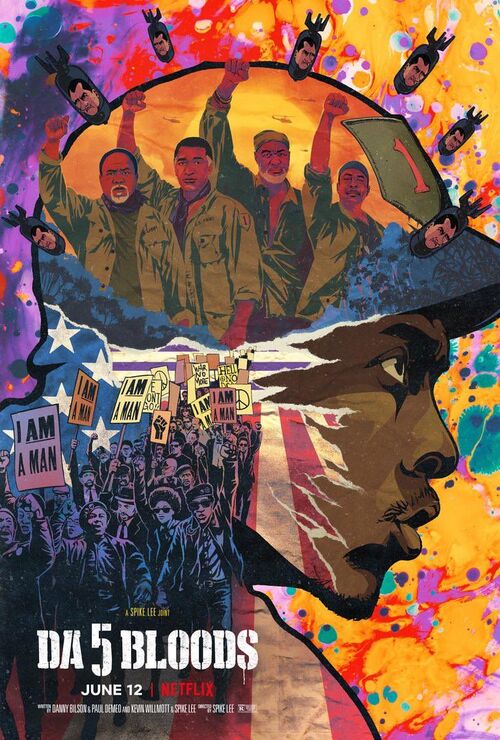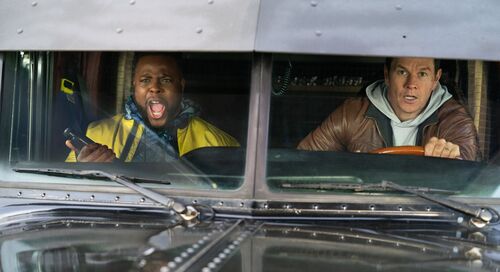
It Comes at Night
 Writer-Director Trey Edward Shults understands what true horror is. His It Comes at Night leaves you in no doubt the thing you should fear the most stares at you every morning. Perhaps, the only thing worse is the person who refuses to acknowledge this paradigm, kind of like the whiners who went into this master class in simmering tension expecting a jump scare fest.
Writer-Director Trey Edward Shults understands what true horror is. His It Comes at Night leaves you in no doubt the thing you should fear the most stares at you every morning. Perhaps, the only thing worse is the person who refuses to acknowledge this paradigm, kind of like the whiners who went into this master class in simmering tension expecting a jump scare fest.
It Comes at Night is extremely disturbing in its overwhelming pessimism, as welcome as this is. It leaves a lingering chill and at its best, the more distressing beats usher in thoughts of an existential cul de sac enveloping humanity’s affairs. Is this a world we should be fighting to stay alive in, Shults seems to ask. He leaves the answer to us as we spend time in this compact dystopia presented to us.
The what and where of this story aren’t critical. Pestilence seems to have decimated civilisation as we know it and the subjects of this film are holed up in a bungalow in the woods. By the time It Comes at Night arrives at its resolution, we realise the who of the film was well defined in the opening moments. Here, Shults envisions a world in which you are alive for your own funeral, well almost. The grief in the air is palpable as an elderly man with dead eyes, puking blood and covered in lesions, has his unspoken goodbye with his family before being ushered outside in wheelbarrow like diseased livestock and shot in the head.
Instead of funeral black, we have gas masks. Instead of a casket, the body is wrapped in flames by this man’s grandson, Travis (Kelvin Harrison Jr.) and son-in-law, Paul (Joel Edgerton). This opening brings to mind a brilliant section of Chinua Achibe’s novel, No Longer at Ease. It’s a bit with an odd mediocre song, as the book puts it, but immensely profound. It describes in the simplest of terms an upside down world, possibly brought on by a man killing his in-law. A man’s in-law is his personal chi, we are told. I wondered if Igbo tradition came into play as Paul killed his in-law. The world was already a hard mess but something extra was undone here.
For sure, something is broken in Travis. It’s something much more than grief for him. His mother, Sarah (Carmen Ejogo) says “he shouldn’t have been there” and “shouldn’t have seen that.” Paul tries to give his assurances but Sarah knows the world is on its head now. Not to borrow from The Walking Dead but they are the walking dead, so to speak, and the walls are closing in. Paul’s drive to keep them safe makes his stringent security look more like a prison. As more details created emerge, we notice that every window in the house is boarded up. There’s only one way in and out through two locked doors, one of which coloured in a striking red.
Travis has strict rules about how they move around. No one goes out night, and during the day, they move outside in pairs, with Travis always part of the moving party. There are times he resembles a prison guard, with his rifle in hand and assertiveness over every situation. The film cuts to its crux when one night, they discover a young father, Will (Christopher Abbott), trespassing in search of water for his young wife and kid who are in an abandoned house some miles away. Some shots are fired, by the end of which Will is restrained to a tree.
The idea of fear and paranoia emerge and the way the characters engage with this idea defines them. A battered Will offers a trade. He has food and livestock. Travis offers much more, upon advice from his wife – an alliance. Things take a turn for the better for all parties and the film’s central foe is on the ropes. But as we soak in the dim rooms lit only by lanterns or the natural sunlight fighting through the trees against a backdrop of greying skies enforcing a certain atmosphere of dread, we sense something bleak closing in like a ticking time bomb.
The film’s totems of innocence take centre stage when the tension peaks and this bomb explodes. Not many films sink me into that inconsolable Sophie’s Choice territory – Incendies? Prisoners maybe? It’s a soul crushing denouement that that sucks in audiences and the characters like an unforgiving vortex. Travis is stunned by the realisation reality is probably worse than his nightmares filled with haunting visions of his dead grandfather and ventures into abysses transfixing terror. When all is stripped away and we are reduced to our most primal elements, we realise the options available are chillingly limited.
We naturally gravitate towards Travis, from the grief filled opening. Harrison has a face and eyes made for close-ups in the quiet moments and he is superb here, in that tacit way, reflecting the isolation this world has forced on him. There is a warm soul in there longing for normalcy. We see it. We also fear for it. Edgerton’s Paul, on the other hand, thrives on the moments of action. He has been made warden by this apocalypse and he will enforce the law. Everyone else is to revolve around him and his regime. But Travis is a history teacher. He should know better.
Shults is running a tight suspense fuelled ship here. He creeps through the film with his camera, as steady as the vigilant characters, to milk the suspense. He also tries to thrive on a certain sense of wariness from the audience. Surely there is something lurking in woods waiting to be discovered or a sinister shadow by a window as he makes these unnerving night time patrols. His ambiguity is effective, keeping us engaged till the moment he properly establishes that we are indeed living in an upside down world; that the worst horrors don’t need the apocalypse to manifest and scare the hell out of us.
-


